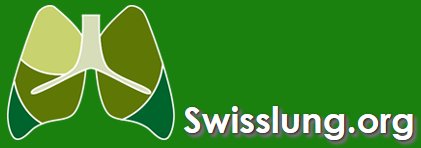The need for training specialist doctors in Pulmonary Medicine in Ethiopia
Pulmonary diseases are one of the major causes of morbidity and mortality in Ethiopia. The vast majority of outpatient visits in Ethiopia is related to pulmonary problems. The main pulmonary diseases are related to pulmonary infections particularly tuberculosis, which is the third cause of morbidity and first cause of hospital death in our country. After the advent of HIV/AIDS, the prevalence and incidence of TB and opportunistic pulmonary infections are increasing in the world with is also true also in our country. Post-TB complications are very common related to TB burden. On top of these escalating communicable pulmonary diseases, non-communicable pulmonary diseases like Bronchial Asthma, COPD, Interstitial lung diseases and lung cancers are also on the rise. With the increase in smoking and little effort to curb its rise, smoking related problems are also on the rise. Other pulmonary diseases like obstructive, restrictive, occupational and environmental lung disease are also a problem. Despite this huge magnitude of pulmonary problems, there is no sub-specialty training program in pulmonary medicine in the country. Hence, there is an urgent need to train young Ethiopian doctors in the field of pulmonary medicine.
Currently, only one Pulmonologist who retired already exists in the Country. There is a growing demand of trained man power in this field and also there is urgent need to produce adequate number of pulmonary diseases specialists to fill teaching and clinical positions in Addis Ababa University and also for the newly established medical schools across the country.
The plan of Swiss Lung Foundation together with the World Lung Foundation in New York for the years 2013-16 is:
In the first year (planning year) a group of pulmonary physicians would travel to Addis for a few weeks to do an assessment; this might involve 3-4 people going over for 2 weeks, and maybe this would happen twice. This would allow us to meet with all the relevant people there and to develop a training program and a curriculum that makes sense and meets the needs of the medical school and hospital there. Also, during that year, we would select the fellow(s) to be trained in the program. Fellows should be accepted based on their performance during residency, interviews, and interest, as usual.
Once the program starts we will need to support the salary of a full-time person from the USA or Switzerland that would go to Addis for a year (or perhaps two people who would go for 6 months apiece) and basically direct the training program on a day to day basis.
In addition we would plan on about 12 weeks of additional teaching from faculty from the USA or from Switzerland. Each faculty member could develop a module on COPD, asthma, TB, lung cancer, critical care, interstitial lung disease, pulmonary infections, etc. and make professor rounds.
The fellowship program itself would be two years in duration, and we should plan to have a significant presence there for at least the first three years. By the third year, we should have expected to train at least 3 fellows, so that by year three, those fellows can become the faculty, and we would reduce our presence to mostly just the visiting professor rounds.
There should be support from the government and the university in Addis for hiring the people we train at salaries attractive enough to keep them in the country after their training is over so that we don't make the brain drain worse. I think that kind of commitment will be important. We would hate to go through the effort to train people only to have them leave when they are done.
The first faculty member to arrive Jan 21, 2013, will be Charles Sherman MD from Brown Univ. in Providence RI, who will remain for the first 6 weeks.


